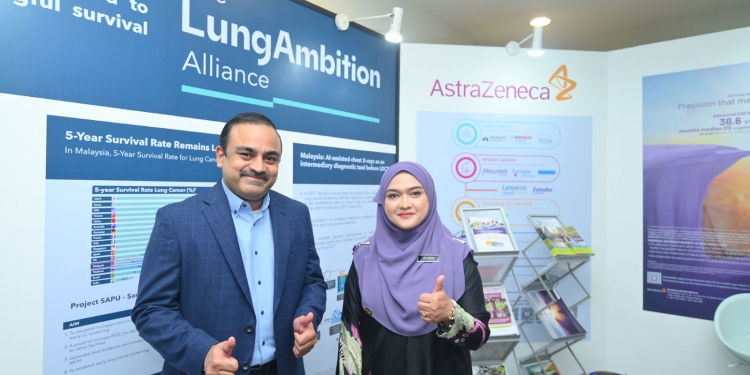Institut Kanser Negara (IKN) and AstraZeneca just announced a collaboration to roll out Artificial Intelligence (AI) x-ray technology into early lung screening at government clinics and hospitals. It is under the Saringan Awal Paru-Paru (SAPU) programme.
Projek SAPU aims to act as a catalyst to encourage the adoption of AI x-ray screening by other government healthcare facilities. IKN also want to close the gap in lung cancer screening and identify more patients in the early stages of cancer with the help of AI.
The collaboration is part of AstraZeneca’s flagship Lung Ambition Alliance programme, first rolled out in 2021 with private clinics. In 2022, AstraZeneca expanded the early AI lung cancer screening programme by partnering with three (3) private tertiary hospitals to facilitate patient referral from the clinics, for further diagnosis using a low-dose computed tomography (LDCT) scan.

Over 19,000 patients have been screened since the program started two years ago, with 400 high-risk patients identified and referred to selected hospitals for further investigation.
With IKN, the AI technology will be rolled out as a pilot study at selected government clinics and hospitals across the country, with selected centres acting as ‘sandbox sites’ to collate data on the roll-out results.
Not only SAPU can help screen for lung cancer, but as the technology works by evaluating x-rays, it can help healthcare practitioners detect other lung-related diseases such as COVID-19, tuberculosis and lung fibrosis.
Other countries are already adopting widespread cancer screening with the help of AI. Countries such as UK, Hungary and the United States are already actively using AI to help health practitioners to screen for cancers like lung and breast, and successfully identified high-risk patients.








